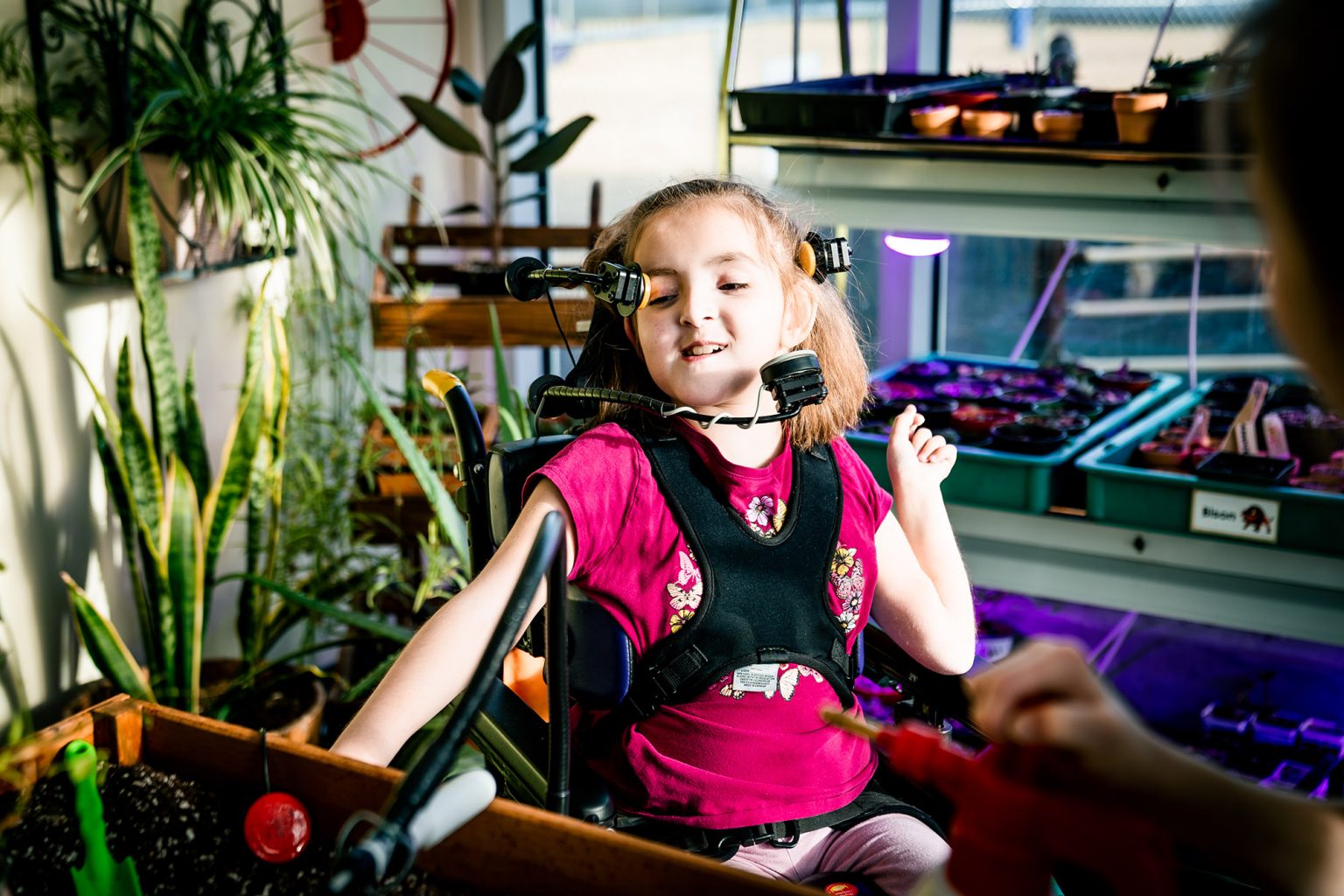Support for the Blind and Visually Impaired
Students who are blind or visually impaired are supported by a Vision Specialist or Teacher of the Visually Impaired (TVI) – a special education teacher who has received certification and specialized training in meeting the educational needs of students with visual impairments.
How We Help
Our Vision Specialists are here to help students excel. This means helping evaluate each student’s individual needs and working closely with teachers and parents to enhance their learning experience in the classroom and at home.
Vision Specialists are responsible for the following:
- Assessing the student’s functional vision and use of learning media to determine educational implications, instructional strategies and educational programming
- Interpreting the student’s medical eye reports as they relate to educational environments
- Collaborating with the learning team, including teachers, parents, therapists, and community partners to identify learning needs
- Providing consultation on educational resources and adaptations that the student needs to succeed, including the development of student-specific literacy programs (e.g. Braille, large print, or audio)
- Ensuring the student has access to the educational aids, kits and equipment needed to maximize their participation in learning activities
- Providing suggestions for adapting educational programs to facilitate student inclusion
- Providing in-service training programs for school and partner agency personnel regarding the needs of students with visual impairments, including adaptations, programs and service delivery

Support for Students with Complex Communication Needs
Renfrew’s Complex Communication Needs (CCN) team supports students who may not be able to communicate using speech alone and who may benefit from using alternative and augmentative communication (AAC) tools and strategies, either temporarily or permanently.
AAC tools help enhance or augment natural speech and consist of a range of electronic and non-electronic options. These tools include gestures, signing, paper-based communication systems (e.g. PODD, paper communication board), and electronic speech-generating communication devices (SGCD) on iPads or other tablet, smartphone or computer equipment (e.g. Accent, NovaChat, GridPad, TobiiDynavox device, LAMP app, TouchChat app, Proloquo2Go app, Unity vocabulary set, PODD vocabulary set, WordPower vocabulary set).
How We Help
The CCN team is made up of Speech-Language Pathologists, Occupational Therapists and Assistive Technology Specialists who support students by providing:
- Assessment, skill development, and funding application support for augmentative and alternative communication (AAC)
- Evaluation of appropriate access methods for communication and other school tasks
- Capacity-building for teachers and educational staff to support students in using AAC and other communication strategies
Core Word Curriculum
The Core Word Curriculum aims to support teachers, therapists and other education professionals in creating a language rich environment, through its centralized and user friendly presentation. The Core Word Curriculum was assembled to support language learning by focusing on core vocabulary. For each of the core words, you will find a page with Aided Language Input (ALI) suggestions, embedded YouTube songs and books, activity ideas, and Predictable Chart Writing prompts that all target meaningful language instruction for that core word. There are a variety of resources located under the resource section, including common core boards, symbols from a variety of common AAC vocabulary sets, and links to other core vocabulary resources.
Support for the d/Deaf and Hard of Hearing
Our d/Deaf and Hard of Hearing (d/DHH) team consists of an Educational Audiologist and Teacher of the Deaf and Hard of Hearing. These professionals who work closely with students, families and our educational team to ensure each student’s individual communications needs are met.
How We Help
The d/DHH team focuses on providing students who are d/Deaf or hard of hearing with the best possible classroom experience by:
- Instructing educational staff on hearing loss and the implications in the classroom (including interpretation of test results)
- Coupling assistive listening technology with classroom assistive technology (including hearing aids, cochlear implant (CI) processors, FM/DM systems)
- Providing recommendations and strategies to enhance learning and ensure access
- Assessing classroom acoustics to optimize the learning environment
- Consulting about individualized programming to enhance auditory skills and participation
- Educating students on their hearing loss and practicing/promoting self-advocacy skills
- Communicating with service providers, the in-school team, and families on hearing and the child or youth’s needs
One of the most helpful things for me and my family was that the Renfrew Team (both specialized and PUF) made regular meetings with us and documented developmental milestones as well as interventions very well.Mati, Parent

